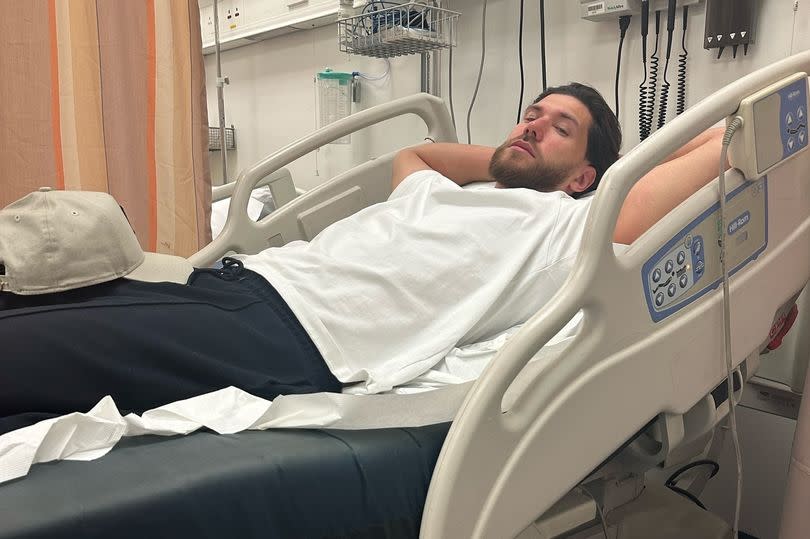How to spot the signs of an allergic reaction after Love Island star suffers severe nut allergy

Love Island star Jack Fowler experienced a severe allergic reaction while on a flight to Dubai, leading to an emergency hospital visit. The 28 year old, who has a serious nut allergy, said his throat "immediately closed" after accidentally consuming a dish containing cashew nuts on an Emirates flight.
Despite informing the cabin crew about his allergy and being assured that the meal was nut-free, he was served a chicken curry which contained cashews. This led to an immediate allergic reaction, which the star claimed meant he "almost died".
Jack shared his terrifying experience on social media, posting a video of himself injecting an EpiPen into his leg and receiving oxygen on board before the plane made an emergency landing.
GloucestershireLive has reached out to Emirates for comment.
READ MORE: Common health issue that causes you to wake up same time every night – and how to fix it
This frightening incident highlights the risks faced by many allergy sufferers.
Reactions to allergens such as nuts, bee stings, and latex can cause symptoms ranging from mild itching and nausea to hives and airway swelling, making breathing difficult, reports the Mirror.
So what are the signs of an allergic reaction?
The most common signs and symptoms in mild allergic reactions include:
a red, itchy rash, or raised area of skin (weals/hives) often around the face and neck
red, itchy, watery eyes
rapid swelling of hands, feet, or face (particularly lips and neck)
abdominal pain, vomiting, or diarrhoea.
In more severe cases however, this can progress to a condition called anaphylactic shock, a severe life-threatening reaction that can occur within seconds after contact with an allergen.
Symptoms of this include:
difficulty in breathing with wheezing or noisy airway
coughing
swelling of tongue and throat with puffiness around eyes
confusion and agitation
signs of shock leading to collapse and unresponsiveness.
How do you treat it?
Most people that know they have a severe allergic reaction will often carry an auto-injector or Epi-pen, containing adrenaline, which is a pre-filled pen that can be injected into the thigh to help reduce the body's allergic reaction, while waiting for help to arrive.
After administering the adrenaline, call 999 or 112 straight away and tell the ambulance that you suspect someone is suffering from anaphylaxis.
While waiting for help to arrive, it is important to try and get the person to remain calm, and monitor their breathing and level of response by lying the casualty down with their legs raised. However, if they are having breathing difficulties, then sit them upright.
Further doses of adrenaline can be given as required at five minute intervals if symptoms continue or return.

 Yahoo News
Yahoo News 